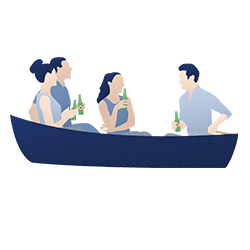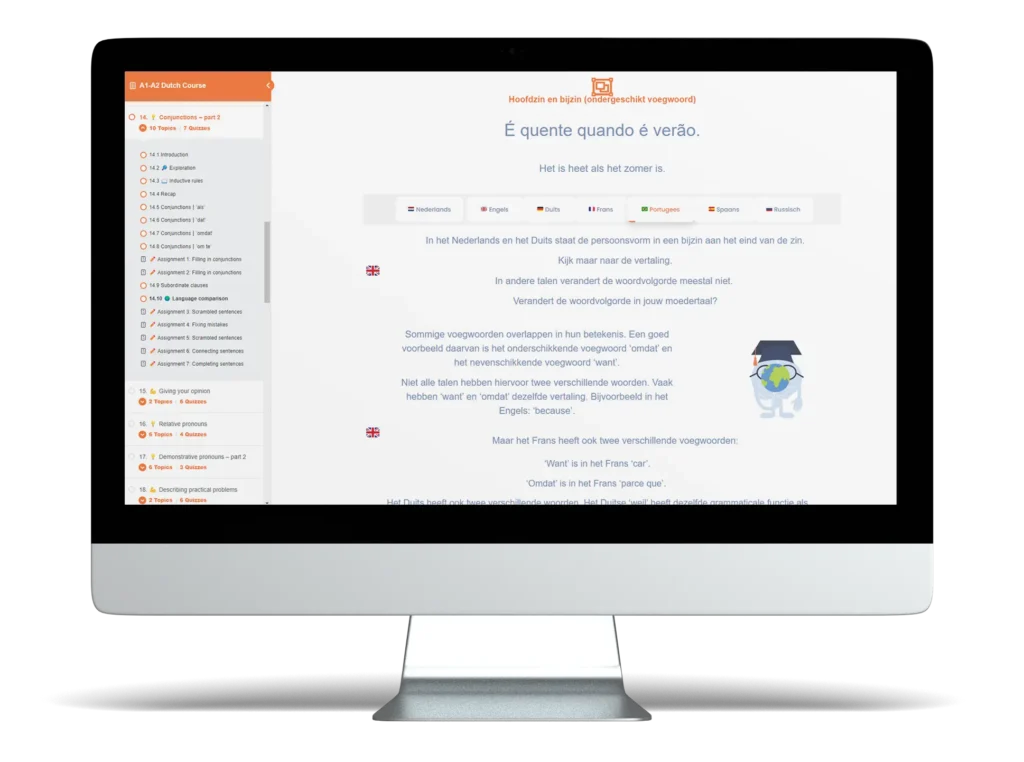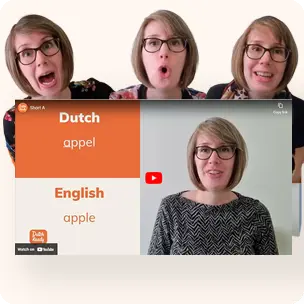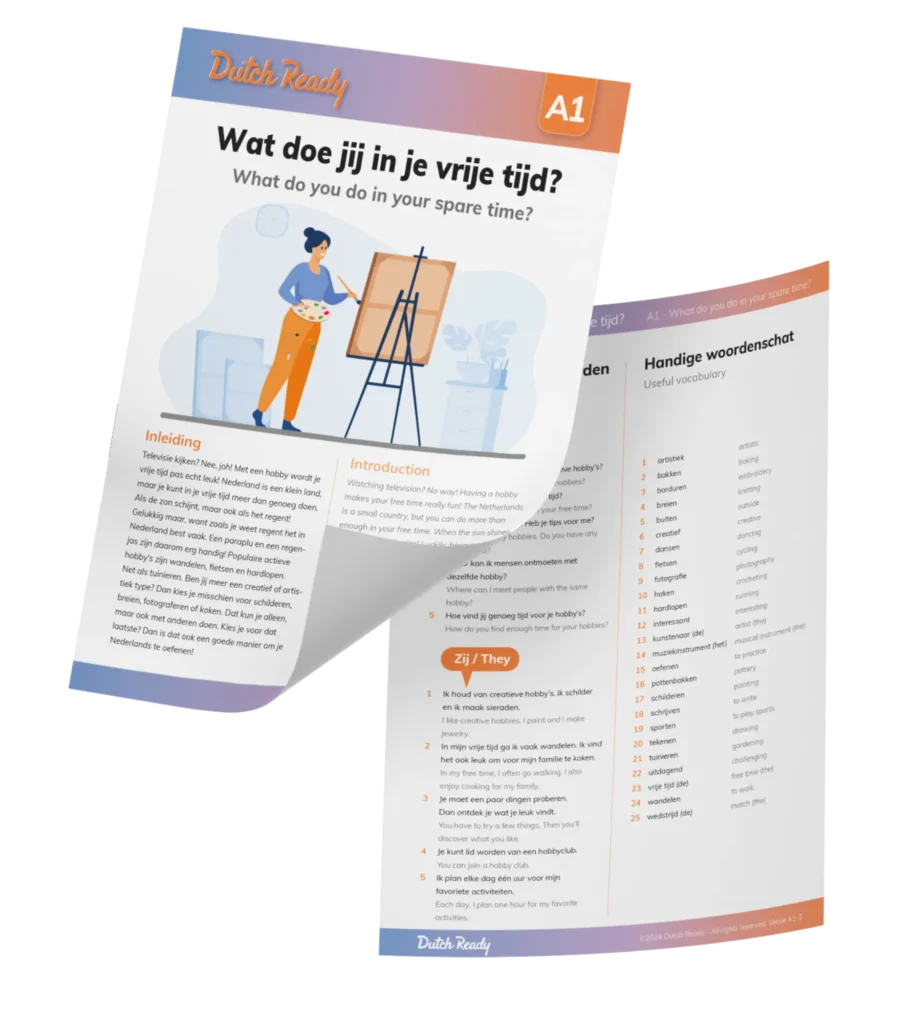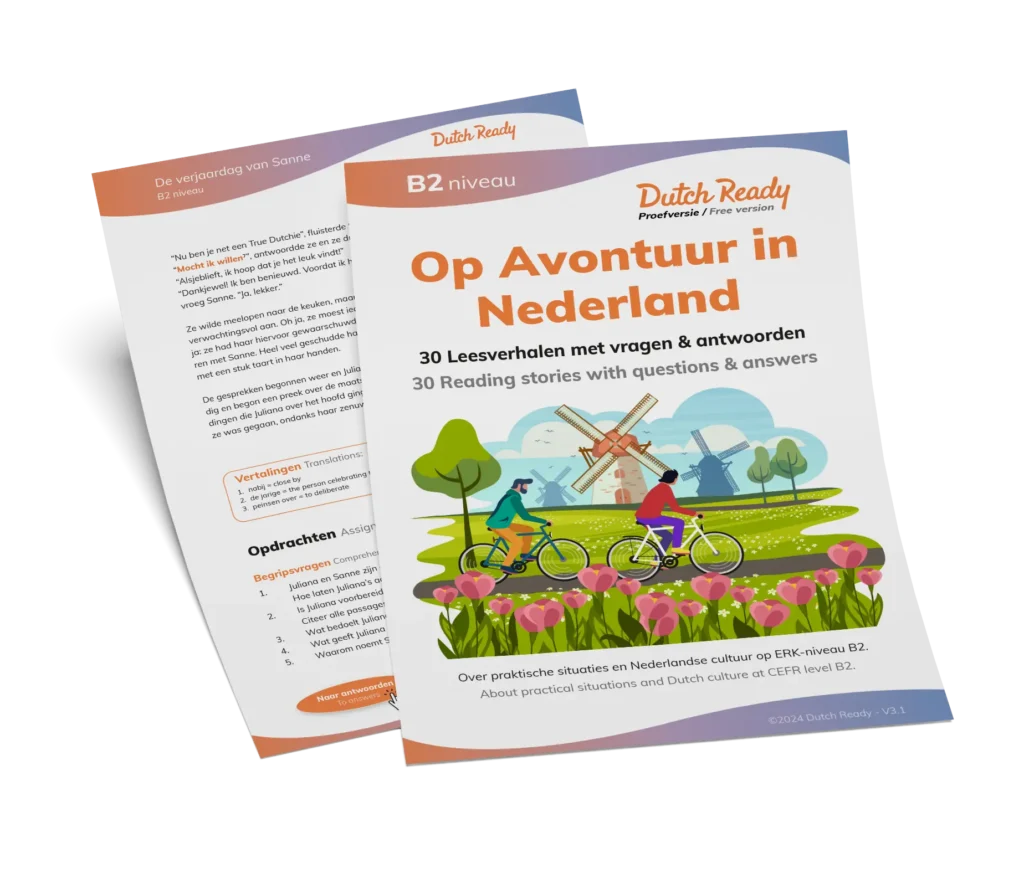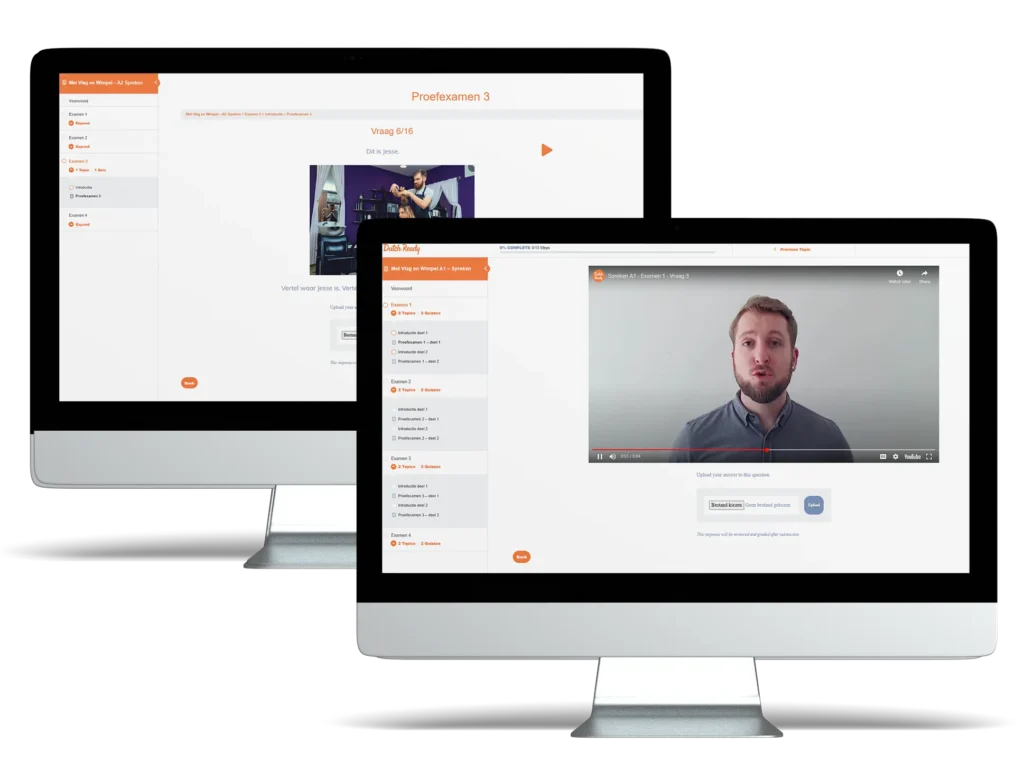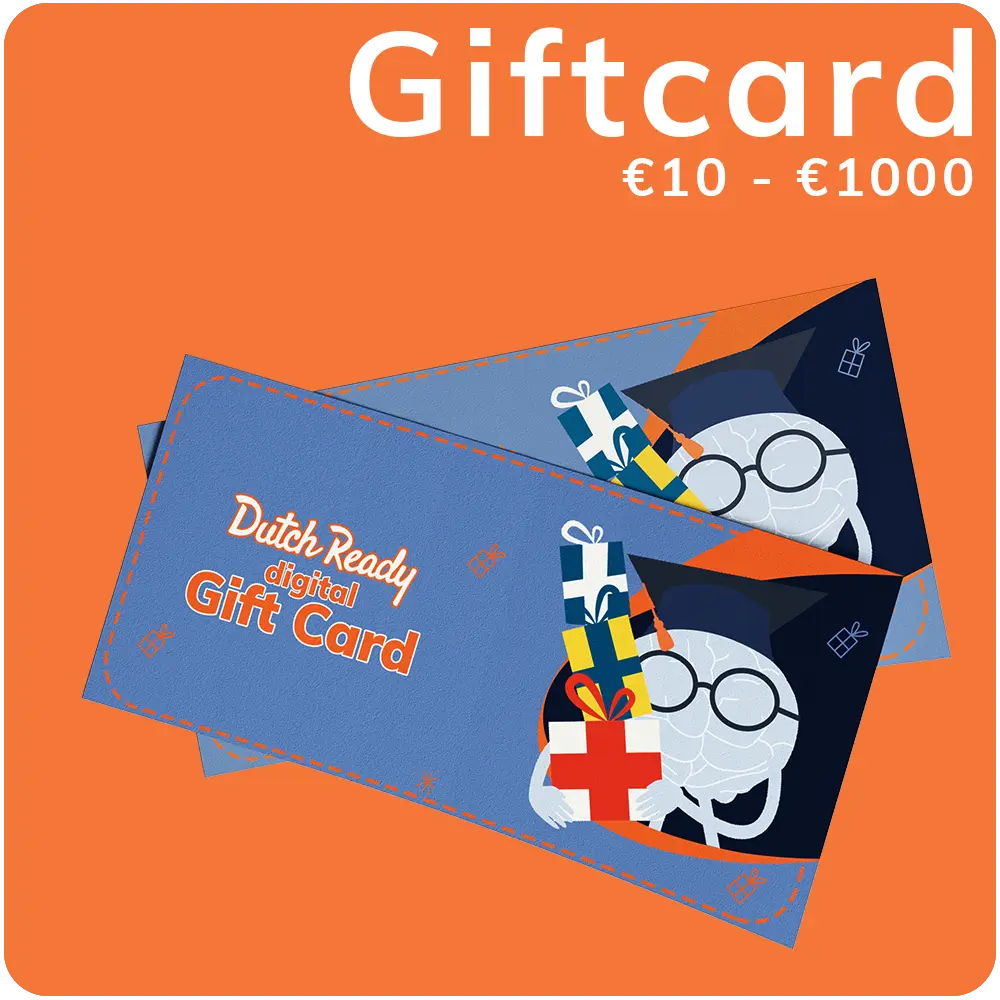🇬🇧
7.6 ‘Wat’: question word or indefinite pronoun
 Wat: vraagwoord of onbepaald voornaamwoord
Wat: vraagwoord of onbepaald voornaamwoord
Het onbepaald voornaamwoord ‘wat’ verwijst naar een handeling of een object, maar geen specifieke handeling of object.
Voor mensen gebruik je in deze context meestal ‘iemand’:
| Kan ik iemand helpen? |
| Kan ik wat doen? |
🇬🇧
Het vraagwoord ‘wat’ staat altijd in een vraag. Een vraagwoord is meestal het eerste woord in een vraagzin.
Het onbepaald voornaamwoord ‘wat’ kan wel in een vraag staan, maar dan als lijdend voorwerp. Bijvoorbeeld:
| Kun je wat voor me doen? |
| Wanneer wil je wat eten? |
🇬🇧
Deze vragen hebben dezelfde vraagstructuur die je al kent.
Question words themselves do not refer to anything.
Question words themselves do not refer to anything. They ask for a reference. So the action or object only becomes clear in the answer.
| Wat kan ik voor je doen? |
| Je kunt de afwas doen. |
Indefinite pronouns refer to something. It’s just not always clear what exactly that is.
So as an indefinite pronoun, you can always replace ‘wat’ with an action or object.
For example:
| Kan ik wat voor je doen? |
| Kan ik de afwas voor je doen? |


